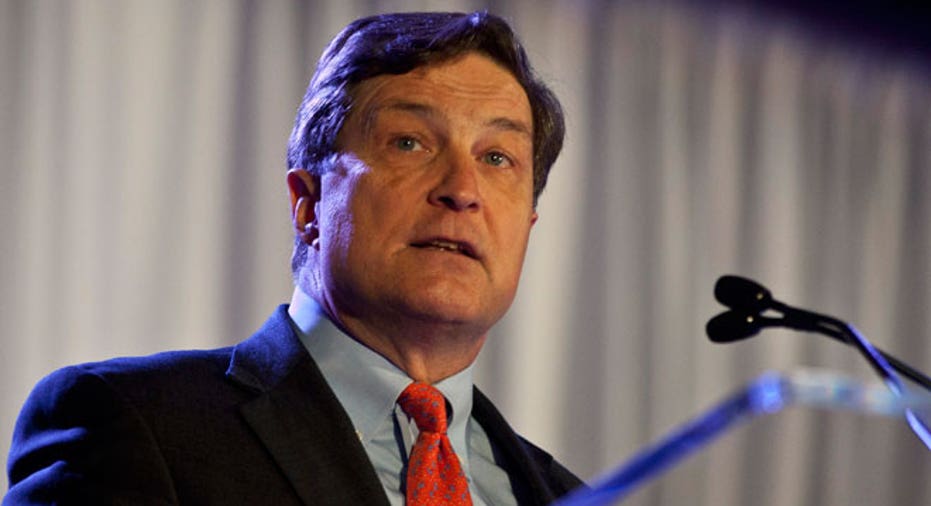Richmond Fed's Lacker: Case For Rate Increase Strong

The case for the Federal Reserve to raise short-term interest rates this month is strong, Federal Reserve Bank of Richmond President Jeffrey Lacker said Friday morning, though he also said he had not decided whether to support the U.S. central bank's first rate increase in nearly a decade.
"Earlier this year I said publicly that I thought the case for raising rates was strong, and I still think that's true," Mr. Lacker said in a speech prepared for delivery at a breakfast in Richmond, Va., hosted by the Retail Merchants Association. "But I should emphasize that I will not make a final decision on the question until I have had the benefit of discussions with my colleagues at the upcoming meeting and have reviewed the additional data we will receive between now and then."
The Fed's last rate increase was in 2006, and officials have said they expect to begin raising the benchmark federal-funds rate, which has been pinned near zero since December 2008, sometime this year. But policy makers appear deeply split on whether to make the first move at their Sept. 16-17 policy meeting.
Federal Reserve Bank of New York President William Dudley last week said raising rates in September had become "less compelling" amid worries about a slowdown in China and volatility in financial markets.
But Federal Reserve Bank of Cleveland President Loretta Mester said market volatility "hasn't so far changed my basic outlook that the U.S. economy is solid and it could support an increase in interest rates."
Fed Vice Chairman Stanley Fischer said a rate increase in September remains a possibility. "I will not, and indeed cannot, tell you what decision the Fed will reach by Sept. 17," Mr. Fischer said last weekend at the Federal Reserve Bank of Kansas City's annual economic symposium in Jackson Hole, Wyo.
Mr. Lacker, a skeptic of the Fed's easy-money policies, this year is a voting member of the rate-setting Federal Open Market Committee. Earlier this year, he voiced support for raising short-term interest rates sooner rather than later.
But when the Fed kept rates pinned near zero at the June and July policy meetings Mr. Lacker didn't dissent.
"I've been willing to wait so far this year," he said Friday. "In part, that's because the FOMC conditioned the public not to expect liftoff before June, and deviating from the expectations we've actively fostered should require a significant departure from the economic conditions we anticipated, which hasn't occurred."
But the Fed has made clear that a rate increase is now possible, he said, and it is now "settled" that the forces holding down growth and inflation earlier this year were transitory.
Mr. Lacker said the Fed has seen the labor-market improvements it had said it was seeking, and "a significant tightening in labor markets has taken place over the last year and a half."
Friday's speech was scheduled for delivery 20 minutes before the Labor Department released the U.S. jobs report for August. Mr. Lacker said that "while there is always a chance that this morning's report is unexpectedly weak, it's quite unlikely that a one-month blip would materially alter the labor-market picture or, for that matter, the monetary-policy outlook."
Mr. Lacker added that while the inflation rate over 12 months remains low, the average annual growth rate of the Commerce Department's personal consumption expenditures price index since January has been 2.2%. "The last half year of data show that inflation already has returned to our 2% objective," he said.
He took note of the recent turbulence in financial markets. "Developments in China appeared to have heightened uncertainty regarding future economic growth and macroeconomic policy there, which seems to have prompted higher financial market volatility in developed market economies," he said. But he added, "it is worth observing that the direct implications of recent developments for economic fundamentals in the United States appear to be quite limited," and "the Fed has a history of overreacting to financial-market movements that seem unconnected to economic fundamentals."
Mr. Lacker concluded, "I am not arguing that the economy is perfect, but nor is it on the ropes, requiring zero interest rates to get it back into the ring. It's time to align our monetary policy with the significant progress we have made."
Write to Ben Leubsdorf at ben.leubsdorf@wsj.com
Subscribe to WSJ: http://online.wsj.com?mod=djnwires
Copyright © 2015 Dow Jones Newswires



















